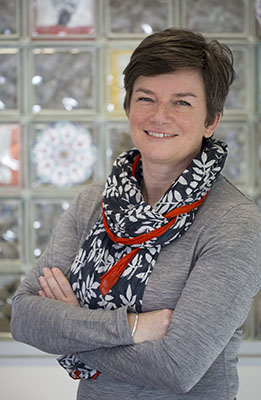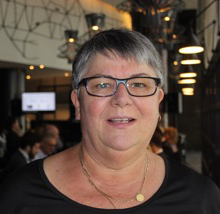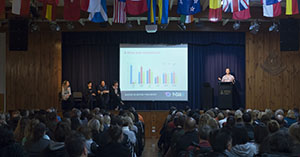
Photo: Fiona Hamilton
“A significant number of young people we see at Headspace have substance-abuse or misuse issues. Alcohol and marijuana are the most prevalent substances, and we also see a little cocaine and ecstasy.
“Ice use is becoming more problematic. We see kids who were battling mental-health issues like depression and anxiety and now they have ice use, too, and some are turning to sex work and crime to pay for that. I’ve heard kids say that they’ve been given ice for free, not realising that sooner or later the people giving them their free ice will want something in return. People are making it available to kids to suck them into using it and then they hit them up for money or sex.
“For the 12 to 14-year-olds, it’s a time of experimentation. For the slightly older group, things happen when they’ve been intoxicated that they are embarrassed and ashamed of, like their behaviour or having unprotected sex. The 17-plus age group are using more and more alcohol and substances to get through the day. They’re binge drinking on weekends and using whatever they can get their hands on with school friends or social groups outside school. After a couple of appointments here, when they feel comfortable, they may tell us they’ve been drinking until they black out, that there are photos of them floating around that they don’t recall or that they lost their virginity because they were drunk.
So what should parents do about it?
“If you are concerned, talk to your young person and tell them you’re worried because they don’t seem to be themself. You can also ring the school to find out if they have concerns about your child, too.
“And then talk to your GP. If you are concerned and your GP is dismissive of those concerns, get a second opinion. So if you say ‘I’m worried about Johnny’, and your GP says ‘that’s what teenagers do’, then find another GP with skills around mental health and young people who can discuss what can be put in place to support your young person.
“Be articulate, have a list of your concerns and run through examples of why you are concerned with your GP. Tell your GP what changes you’ve noticed in your child and what the school has noticed, too.
“Know what to ask for – such as a referral to a counsellor or a psychologist. Be proactive and articulate in what you want when talking to your GP.
“If you feel you aren’t getting what you need from your doctor ask the school if they can recommend a GP, or see an agency like ours that specialises in youth mental health. You can talk to us to find out your next steps. We can give parents strategies on how to engage the young person and what to look for. So parents know they can support their young person and get help for them if that is needed.
“If things get to the point where you see consistent deterioration and changes in your teenager, I think that’s the time to get professional help. We have family therapists and can organise an extended session with the whole family to look for solutions, to find out what might work, what hasn’t worked and what can be done differently.
“Would you keep going back to someone you don’t think gets you? As parents, find someone you can talk to, who listens and whom you feel does their best to understand your perspective and that of your young person. And remember that parents are experts on their kid and hold on to that notion. You know your young person better than anyone else in the world and it’s your job to advocate for your child’s well-being.”
Kirsten Cleland is manager of Headspace in Elsternwick.




Comments (518)
Comments are closed.